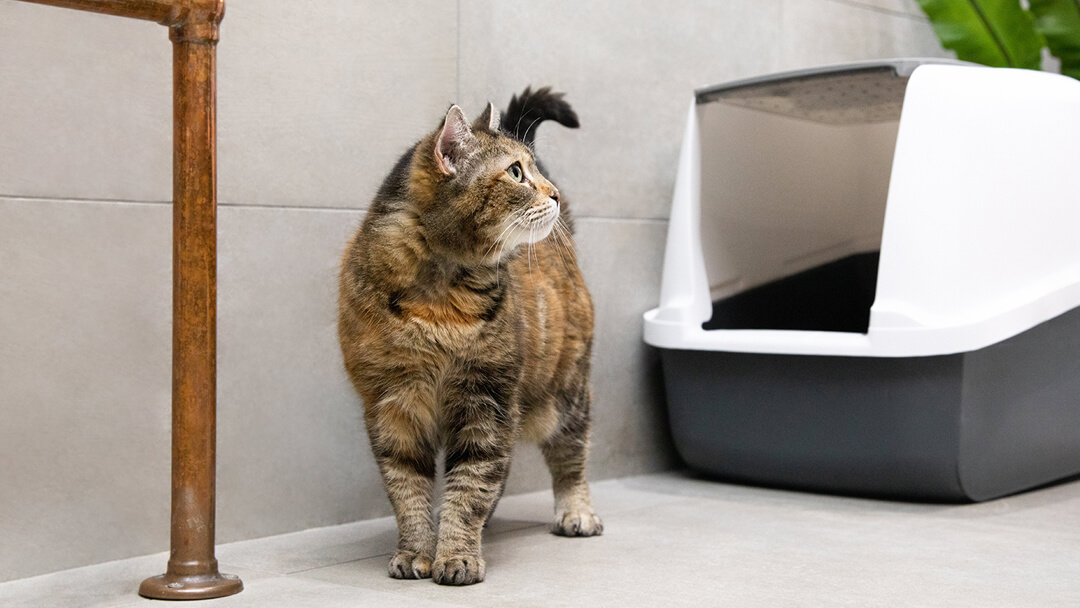To know if your cat has worms, look for signs such as weight loss, vomiting, diarrhea, or small white worms in their feces. Worms are a common health issue in cats, and it’s important to identify and treat them promptly to prevent complications.
We will discuss the various types of worms that can infect cats, their symptoms, and the treatment options available. We will also provide some preventive measures to keep your feline friend worm-free. By learning about the symptoms and taking preventive measures, you can ensure the well-being of your beloved pet.
So, let’s dive in and explore how to detect and treat worms in cats.
Overview Of The Importance Of Being Aware Of The Signs Of Worms In Cats
It is crucial to be aware of the signs of worms in cats as they can significantly impact their health and well-being. Worms are common in cats and can cause a range of issues, including weight loss, diarrhea, vomiting, and a dull coat.
These parasites can also lead to serious complications if left untreated. Regularly observing your cat’s behavior, such as changes in appetite, lethargy, or a distended abdomen, can help identify the presence of worms. Other signs may include visible worms in the cat’s feces or around the anus.
If you notice any of these symptoms, it is important to consult a veterinarian for proper diagnosis and treatment. Timely intervention can help protect your cat’s health and prevent the spread of worms to other pets or humans in the household.
Be proactive in ensuring your cat’s well-being by staying vigilant for signs of worms.
Common Physical Indications Of Worms In Cats
Detecting worms in your cat can be challenging but certain physical indications can help you identify them. Look for changes in appetite and weight loss as potential signs of worm infestation. Keep an eye on your cat’s feces for any visible signs of worms, such as small white segments.
Additionally, observe your cat’s coat – a dull and dry appearance may indicate the presence of worms. Be vigilant if your cat experiences frequent vomiting or diarrhea, as this can also signal the presence of worms. It’s important to stay aware of these physical indications and consult your veterinarian for proper diagnosis and treatment.
A healthy and worm-free cat leads to a happy and fulfilled life for both you and your furry friend.
Behavioral Signs That May Indicate Worms In Cats
A cat with worms may show signs of lethargy and reduced activity levels. You may also notice increased licking or biting of the anal area. Additionally, persistent coughing or wheezing could be a sign of worms in cats. Another behavioral change to look out for is changes in litter box habits.
If your cat starts going more frequently or less frequently, or if there are changes in the appearance of their stool, it could indicate the presence of worms. It’s important to keep an eye out for these signs and seek veterinary care if you suspect your cat may have worms.
Early detection and treatment can help ensure your cat’s health and well-being.
Unusual Physical Symptoms That Could Suggest The Presence Of Worms
Unusual physical symptoms, like a bloated or distended abdomen, could indicate the presence of worms in your cat. Keep an eye out for visible worms in your cat’s vomit or feces, as this is a clear sign of an infestation.
Additionally, if you notice live worms in your cat’s fur, it could point to a worm problem. It is important to pay attention to these symptoms and seek veterinary care if necessary. Worms can cause various health issues for your cat, including weight loss, poor coat condition, and even organ damage.
Regular deworming and proper hygiene practices can help prevent worms in cats and ensure their well-being. Stay vigilant and protect your feline friend from these pesky parasites.
When To Consult A Veterinarian For A Possible Worm Infestation
When suspecting a worm infestation in your cat, it is crucial to consult a veterinarian. Professional diagnosis and treatment play a vital role in ensuring your cat’s health. Untreated worms can lead to various risks and complications that may impact your cat’s well-being.
From gastrointestinal issues to anemia, worms can have serious consequences. Seeking veterinary guidance is essential to identify the specific type of worms and develop an appropriate treatment plan. While there are over-the-counter options, a veterinarian will provide tailored advice and prescribe the most effective medication.
Remember, self-diagnosing and self-medicating can be risky, as it may lead to wrong treatments or complications. By relying on a veterinarian’s expertise, you can ensure your furry friend receives the best care and improves their quality of life.

Credit: www.purina.co.uk
Preventive Measures To Avoid Worm Infestations In Cats
Regular deworming and vaccination are crucial to prevent worm infestations in cats. Maintaining cleanliness and hygiene in the cat’s living environment is equally important to minimize the risk. Proper disposal of feces and regular cleaning of the litter box help to eliminate any potential sources of infection.
By following these preventive measures, cat owners can ensure the well-being of their feline companions and protect them from the harmful effects of worms. Keeping up with a scheduled deworming and vaccination routine, combined with good hygiene practices, creates a safe and healthy environment for cats, reducing their susceptibility to worm infestations.
As responsible pet owners, it is our duty to take these precautions and safeguard our furry friends from the discomfort and health issues associated with worms.
Frequently Asked Questions On How Do I Know If My Cat Has Worms
Here are some frequently asked questions related to how to know if a cat has worms:
-
Q: What are the common signs that my cat might have worms?
- A: Common signs include weight loss, vomiting, diarrhea, scooting, visible worms in feces, lethargy, and changes in appetite.
-
Q: Can I see worms in my cat’s feces?
- A: Yes, sometimes worms or small, rice-like segments of worms may be visible in the feces. However, not all types of worms are easily seen with the naked eye.
-
Q: How often should I deworm my cat?
- A: The frequency of deworming depends on various factors, including your cat’s lifestyle and risk of exposure to worms. Consult with your veterinarian to establish an appropriate deworming schedule.
-
Q: Can my indoor cat get worms?
- A: Yes, indoor cats can still get worms. They can be transmitted through contaminated food, exposure to infected rodents, or even by hitchhiking on your clothing or shoes.
-
Q: What are the different types of worms that cats can get?
- A: Common types include roundworms, tapeworms, hookworms, and whipworms. Each type may present different symptoms and require specific treatments.
-
Q: How are worms diagnosed in cats?
- A: A veterinarian can diagnose worms through fecal testing. In some cases, symptoms and clinical examination may also contribute to the diagnosis.
-
Q: Can worms in cats be transmitted to humans?
- A: Some types of worms that infect cats can be transmitted to humans (zoonotic). It’s essential to practice good hygiene, such as washing hands thoroughly after handling cat feces.
-
Q: Can over-the-counter dewormers be used, or should I consult a veterinarian?
- A: While some over-the-counter dewormers exist, it’s recommended to consult a veterinarian for an accurate diagnosis and appropriate treatment plan. Different worms require different medications.
-
Q: How can I prevent my cat from getting worms?
- A: Regular veterinary check-ups, a clean living environment, and preventing access to contaminated food or areas where parasites may be present can help prevent worm infestations.
-
Q: Are there any specific behaviors that indicate my cat might have worms?
- A: Yes, behaviors such as scooting (dragging their bottom along the ground), excessive grooming of the anal area, and vomiting may indicate the presence of worms.
Remember, if you suspect your cat has worms or is showing any concerning symptoms, it’s crucial to seek advice from a veterinarian for proper diagnosis and treatment.
Conclusion
If you notice any unusual symptoms or changes in your cat’s behavior, it’s important to consider the possibility of worms. The presence of worms in your feline friend can lead to serious health issues if left untreated. Look out for signs such as weight loss, vomiting, diarrhea, and a bloated abdomen.
Regular preventive measures like deworming medication and maintaining good hygiene can help keep your cat worm-free. Keeping your cat’s living environment clean, including their litter box, can also reduce the risk of worm infestation. If you notice any of the symptoms mentioned, consult with a veterinarian for proper diagnosis and treatment.
Remember, early detection and timely intervention are crucial in protecting your cat’s health and ensuring a happy and worm-free life for your feline companion.



